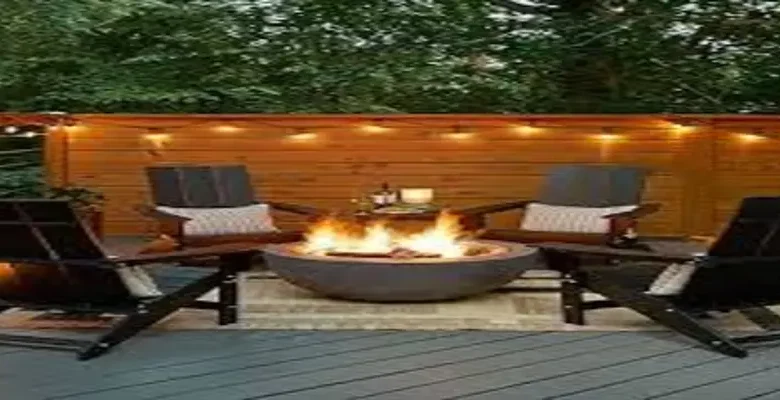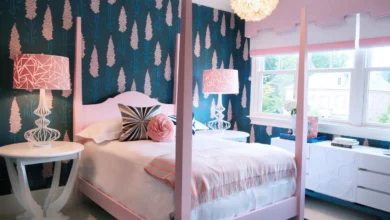The Ultimate Guide to Your Outdoor Project

An outdoor project can be one of the most rewarding undertakings, combining creativity, hands-on effort, and a love for the great outdoors. Whether you’re looking to transform your backyard, create a cozy garden nook, or build something functional like a deck, an outdoor project lets you personalize your space while enjoying nature. These ventures are more than just tasks; they’re opportunities to reconnect with your environment, unleash your creativity, and perhaps even learn a few new skills along the way.
Outdoor projects can range from small, weekend DIY tasks to large-scale installations requiring meticulous planning and effort. Regardless of the scope, the satisfaction of completing such a project is unparalleled. Let’s dive deep into the world of outdoor projects, exploring everything from planning to execution.
Planning Your Outdoor Project: Laying the Foundation
Every successful outdoor project begins with solid planning. Jumping into a project without a clear vision or preparation can lead to frustration and unmet expectations. Start by defining what you want to achieve. Is it an aesthetic upgrade, a functional addition, or both?
Once you have a clear goal, consider the space available and its natural features. Take time to assess your area’s size, layout, and unique characteristics like sunlight exposure, soil type, or existing vegetation. These factors play a crucial role in determining what’s feasible and what materials or designs might work best.
Budgeting is another important step. The cost of materials, tools, and any professional help should align with your financial plans. Creating a detailed list of necessary items and their estimated costs can save you from unexpected expenses later on.
Choosing the Right Materials for Your Outdoor Project
The materials you select will significantly impact your project’s durability, functionality, and aesthetic appeal. From wood and metal to stone and synthetic options, the choices are endless. Each material has unique properties suited to specific applications.
Wood is a classic favorite for outdoor projects like decks, fences, and furniture. Its natural beauty and warmth make it a versatile choice, but it does require proper maintenance to withstand outdoor conditions. Treated lumber or naturally resistant woods like cedar and teak are excellent options.
For a more modern look, consider metal or composite materials. These offer durability and low maintenance, ideal for structures like pergolas, railings, or accent features. Stone is another timeless option, perfect for pathways, walls, or fire pits, adding a touch of rustic charm to any project.
Exploring Landscaping as an Outdoor Project
Landscaping is one of the most transformative outdoor projects you can undertake. It encompasses everything from planting flower beds to creating water features or even installing garden pathways. Landscaping not only boosts your property’s curb appeal but also enhances the overall environment by promoting biodiversity.
Start small by choosing plants suited to your climate and soil. Native plants are always a great option, as they require less maintenance and are better adapted to local conditions. Adding features like mulching or raised garden beds can also enhance functionality while reducing upkeep.
For those looking to make a bigger impact, consider adding structural elements like trellises, retaining walls, or decorative lighting. These additions create depth and visual interest, turning your garden into a true sanctuary.
Building a Patio or Deck: Enhancing Usable Space
A patio or deck is one of the most functional outdoor projects, providing a space for relaxation, entertainment, and family gatherings. While patios are usually built at ground level using materials like concrete, brick, or stone, decks are elevated and often made of wood or composite materials.
The choice between a patio or deck often depends on your landscape and budget. Decks are great for uneven terrains, allowing you to make use of slopes or elevated views. Patios, on the other hand, are more durable and versatile for hosting events like barbecues or outdoor dinners.
When planning your patio or deck, consider factors like size, design, and intended use. Adding elements like pergolas, outdoor furniture, or built-in seating can elevate the space, making it more inviting and functional.
Creating a Garden Oasis: A Nature-Lover’s Dream
Transforming your outdoor space into a lush garden oasis is a dream project for many. With thoughtful planning, you can create a serene retreat that reflects your personality and preferences. From vibrant flower beds to edible gardens, the possibilities are endless.
Start with a focal point, such as a water feature, sculpture, or unique plant species. Surround this centerpiece with complementary elements like soft lighting, cozy seating, or pathways that guide visitors through your garden. The key is to strike a balance between structure and nature, creating a harmonious and inviting space.
For those who enjoy sustainability, consider adding features like a compost bin, rainwater harvesting system, or pollinator-friendly plants. These elements not only benefit the environment but also make your garden more self-sufficient.
Incorporating Outdoor Lighting into Your Project
Lighting can make or break the ambiance of an outdoor space. Properly placed lighting not only improves safety but also highlights key features and sets the mood for your outdoor area. From string lights and lanterns to solar-powered fixtures, there are countless options to explore.
Pathway lighting is a practical addition, ensuring safe navigation after dark. For a more decorative approach, use uplights to emphasize trees or architectural features, or install dimmable fixtures around seating areas to create a cozy atmosphere.
Solar-powered lights are an eco-friendly option, especially for those looking to minimize electricity usage. These lights are easy to install and come in various designs, making them a versatile choice for any outdoor project.
Installing Water Features: Adding Serenity to Your Space
Water features, such as fountains, ponds, or waterfalls, are a luxurious addition to any outdoor project. They bring a sense of calm and movement to the space, while also attracting wildlife like birds and butterflies.
Small-scale features like tabletop fountains or container water gardens are perfect for those with limited space or budget. For larger areas, consider installing a pond with aquatic plants and fish, or a cascading waterfall for a dramatic effect.
Maintaining a water feature requires some effort, such as cleaning filters or preventing algae buildup, but the tranquility it brings is well worth it. Adding lighting to your water feature can enhance its beauty, creating a magical effect during the evening hours.
Creating an Outdoor Kitchen: A Chef’s Paradise
For those who love entertaining, an outdoor kitchen is the ultimate project. From grilling stations to fully-equipped setups with sinks, refrigerators, and storage, an outdoor kitchen turns your backyard into a hub of activity and flavor.
Start by identifying the essentials based on your cooking style. A basic setup might include a grill, countertop space, and storage, while a more elaborate kitchen could feature a pizza oven, wine cooler, or even a bar area. Choosing weather-resistant materials is crucial for the longevity of your kitchen.
Adding shelter, such as a pergola or canopy, ensures your outdoor kitchen is usable year-round, regardless of the weather. Incorporating seating areas nearby keeps your guests comfortable and engaged while you cook.
Sustainability in Outdoor Projects: Going Green
Sustainability is becoming increasingly important in outdoor projects, with more people opting for eco-friendly practices and materials. From using recycled materials to installing energy-efficient features, there are many ways to make your project green.
Consider incorporating native plants, which require less water and maintenance, or using permeable materials for pathways and patios to reduce runoff. Solar lighting and rainwater harvesting systems are simple yet effective additions that contribute to sustainability.
Repurposing old materials, such as wooden pallets or stones, is another creative way to minimize waste while adding a unique touch to your project. By prioritizing sustainability, you can create an outdoor space that’s beautiful, functional, and environmentally conscious.
Finishing Touches: Bringing It All Together
Once the main elements of your outdoor project are complete, it’s time to focus on the details that make the space truly yours. Accessories like cushions, rugs, or decorative pots add comfort and style, while personal touches like artwork or custom signs give the area character.
Consider the overall theme of your outdoor space when choosing these finishing touches. Whether it’s rustic, modern, or eclectic, consistency in design elements ties the project together.
Adding greenery, such as hanging plants or vertical gardens, can soften hard surfaces and bring a touch of nature to every corner. These small additions often make the biggest difference in creating a welcoming and harmonious environment.
Embracing the Outdoor Project Lifestyle
An outdoor project is more than just a task; it’s a journey of creativity, problem-solving, and connection with nature. Whether you’re a seasoned DIY enthusiast or a beginner exploring the possibilities, there’s always something new to learn and discover.
By embracing outdoor projects, you’re not only enhancing your space but also investing in your well-being. The joy of stepping into a space you’ve designed and built with your own hands is unmatched. So go ahead, pick up those tools, and start your next outdoor project—you’ll be amazed at what you can create.





